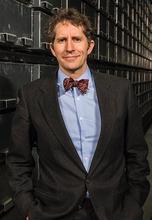COMPUTATIONAL SOCIAL SCIENCE WORKSHOP
Abstract: I explore how social connection between scientists, engineers and citizens place soft but strong limits on what a collective can know, discover, and invent. This includes empirical demonstrations of how centralized networks decrease the truth value of collective certainty in crowds and fields, how large teams shrink the search space of science and technology, and how flocking correlates investigations, slows discovery and limits the size of future understanding. I then show how the complex systems of science, technology and society generate productive social disconnection that accelerate advance by maintaining crossable boundaries between disciplines, ideologies, and technologies. Finally, I explore policies that can be designed and computational intelligences generated to help us collectively think differently, and to help us think better.
James Evans is Professor of Sociology, Director of Knowledge Lab, and Faculty Director of Computational Social Science at the University of Chicago. His research uses large-scale data, machine learning and generative models to understand how collectives think and what they know. This involves inquiry into the emergence of ideas, shared patterns of reasoning, and processes of attention, communication, agreement, and certainty. Thinking and knowing collectives like science, Wikipedia or the Web involve complex networks of diverse human and machine intelligences, collaborating and competing to achieve overlapping aims. Evans’ work connects the interaction of these agents with the knowledge they produce and its value for themselves and the system. Evans designs observatories for understanding that fuse data from text, images and other sensors with results from interactive crowd sourcing and online experiments. Much of Evans’ work has investigated modern science and technology to identify collective biases, generate new leads taking these into account, and imagine alternative discovery regimes. He has identified R&D institutions that generate more and less novelty, precision, density and robustness. Evans also explores thinking and knowing in other domains ranging from political ideology to popular culture. His work has been published in Nature, Science, PNAS, and top social and computer science outlets.
This workshop is cosponsored by the Center for the Study of American Politics (CSAP) and the Yale School of Management (SOM) with support from the Initiative for Leadership and Organization at SOM.
Open to the Yale community only.
